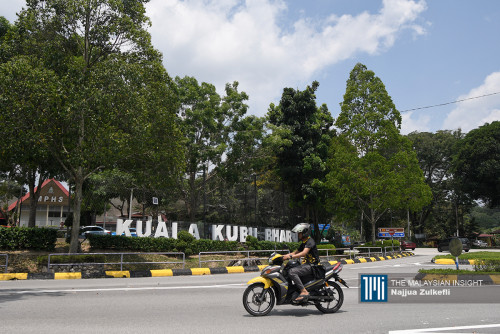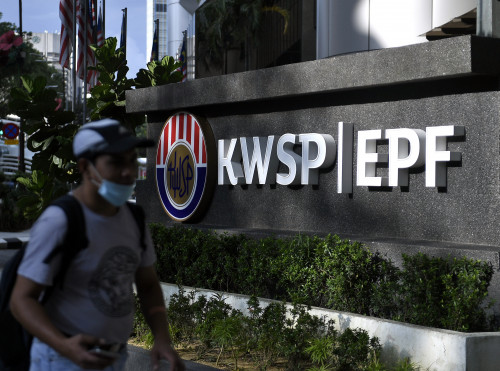FROM RAMPANT job scams to sophisticated e-commerce attacks, cyber threats in Southeast Asia are skyrocketing.
Singapore reportedly had more than 46,000 cybercrime cases in 2023, including job scams and e-commerce scams, the highest since 2016.
Things were almost as bad in Malaysia. Cases involving social media scams reportedly increased by 37 percent from January to November 2023 compared to the year before.
In Australia, phishing scams reportedly skyrocketed by more than 48 percent in the first half of 2023 compared to 2022.
Australia, Malaysia and Singapore could strive to deepen partnerships in digital security as these countries face common challenges in digitalising their economies.
Cybercrime syndicates operate across borders with impunity. Cyberspace enables them to evade national jurisdictions and constantly refresh their tactics.
Australian, Malaysian and Singaporean police forces could work more closely on information exchange and joint operations to uncover them.
These countries' authorities could also exchange policy views on how telcos, social media platforms, and banks should be more responsible for prevention to make digital services safer from cybercrimes.
Regional challenge
Australian authorities are revamping their cybersecurity measures after several major breaches affecting critical infrastructure and businesses such as ports, healthcare and telcos.
A report by cyber-intelligence company Cyfirma states that Asean nations' significant cybersecurity challenges include ransomware, state-sponsored threats, disruptions to Internet of Things (IoT) devices, and tech supply chain vulnerabilities.
Australia's International Cyber and Critical Technology Engagement Strategy, launched in 2021, positions cyberspace at the centre of its foreign policy and emphasises regional cooperation with Asean. Its Cyber and Critical Technology Cooperation Programme supports cyber capacity building in Asean.
Cooperative platforms that Australia could explore partnering with through Asean are the Asean Cyber Defence Network, led by Malaysia, and the ADMM Cybersecurity and Information Centre of Excellence, led by Singapore.
The resilience of subsea cables is crucial as these underpin the digital economy and modern life.
Yet, there are gaps in international norms and rules on their protection, and coordination among regional governments and industry stakeholders is still limited. This is an area that Australia could explore with Malaysia and Singapore.
It is an opportune time for these three nations to discuss strengthening their digital security, part of Australia's 2040 Southeast Asia Economic Strategy.
Among the strategic issues include changing how infrastructure is developed and operated.
For example, Malaysia is increasing the automation of its ports, growing its electric vehicle ecosystem, and courting more data centres to become another regional tech hub.
These require investments in reliable 5G wireless connectivity, secure telecommunications assets, and well-maintained and secure subsea cables to function well.
Australia sees opportunities to leverage its digital strengths to partner with Asean countries in these sectors.
The strategy notes growing e-commerce between Asean countries and Australia.
Singapore and Australia signed a digital economy agreement in 2020 to set digital trade rules, which include ensuring the interoperability of e-invoicing systems and the sufficient protection of personal data.
Australia sees value in cooperating with Asean countries to improve their cyber security and resilience against sophisticated digital threats that exploit e-commerce. This, in turn, could help protect the Australian economy from cybercrimes and cyberattacks.
Areas of cooperation
Indeed, greater interest and investment in the digital economy come with the need to strengthen bilateral and regional cooperation in digital security.
As two of Australia's largest trading partners in Southeast Asia, Malaysia and Singapore could work together with Australia to demonstrate to the region how dialogue may lead to practical digital security cooperation.
This could have knock-on benefits for other Asean countries (and Timor-Leste) in the earlier stages of digitalisation.
There is an expansive spectrum of cooperative areas in digital security, but three areas — cybercrimes, security of digital systems, and subsea cables — may be the most vital for Australia, Malaysia and Singapore.
The Asean-Australia Summit offered avenues for Australia and Asean countries — including Malaysia and Singapore — to act on their comprehensive strategic partnership to support multilateralism in the digital economy and digital security in Southeast Asia and the Asia-Pacific.
There may be potential for Asean to leverage Australia's strengths, as a Quad member country, in mapping how emerging technologies such as Artificial Intelligence (AI) and quantum computing could revolutionise the digital economy and security or enable different forms of cyber threats.
Likewise for Australia's plan to establish an Indo-Pacific Cable Connectivity and Resilience initiative.
However, certain issues may still limit how much Australia could partner deeply with Malaysia, Singapore and other Asean countries on digital security.
For one, a balance is necessary between Australia's focus on human rights and democratic values in cyberspace, and Asean countries' less ideologically driven approach to technology.
There may also be divergent strategic interests if the China threat comes out too strong in the way Australia frames digital security cooperation while Asean countries like Singapore and Malaysia deepen digital trade with China.
Still, these issues must be navigated to reap the benefits of the digital economy while tackling common digital security challenges amid a reshuffling of the international order.
How Australia, Malaysia, and Singapore do it can be an example for the rest of the region. – 360info, March 10, 2024
Muhammad Faizal Abdul Rahman is a research fellow at the Institute of Defence and Strategic Studies, S. Rajaratnam School of International Studies, Nanyang Technological University, Singapore.
Published under Creative Commons and in partnership with 360info.org.



_pic._Credits_Unsplash_licence..png)









.jpg)



.jpg)



